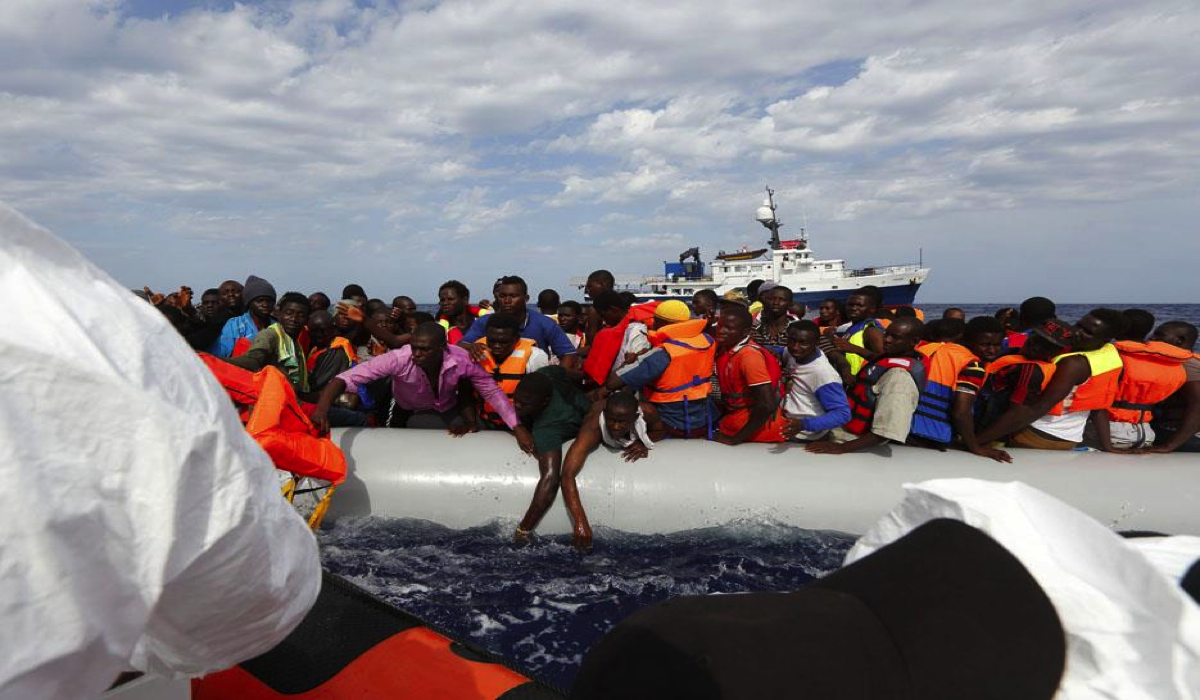20.000 sono le persone morte nel Mar Mediterraneo dal 1993. Circa 207.000 sono coloro che nel 2014 hanno cercato di approdare in Europa. 3419 di loro non ce l’hanno fatta, quasi uno su 60. Cifre che fanno rabbrividire, dati che toccano (non tutte) le coscienze occidentali e constatano il fallimento delle politiche europee volte e tutelare le proprie coste e la vita dei migranti. Christopher Catrambone è un imprenditore di successo. La sua azienda, la Tangeri Group, offre servizi medici, assicurazione e analisi di sicurezza per imprese che operano in ambienti ad alto rischio. Nel 2005 l’uragano Katrina ha devastato la sua abitazione in Louisiana e da quel momento Christopher ha rivoluzionato la propria vita trasferendosi in Europa, a Malta. Qui Catrambone ha deciso di investire 7,5 milioni di dollari per il progetto MOAS, la Migrant Offshore Aid Station ( www.moas.eu ), una nave di 40 metri super accessoriata che trasporta due droni, due gommoni e un equipaggio specializzato di tecnici e medici. “Non siamo qui per salvare il mondo, ma per aiutare persone che hanno un disperato bisogno d’aiuto”ha dichiarato Catrambone al Times, “ho investito circa la metà del mio patrimonio in questa operazione che per continuare ha però bisogno di un intervento pubblico”. L’operazione è stata inaugurata nell’estate scorsa e nei primi 60 giorni ha salvato e soccorso circa 3000 persone. Sul fronte economico sono state decisive le piccole donazioni private, ma nel medio termine sarà necessario integrarle con contributi più sostanziosi senza i quali verrebbe pregiudicata la funzionalità dei due droni, fondamentali per individuazione delle emergenze marittime. Se fossimo inguaribili sognatori prevedremmo che nei prossimi anni ci saranno decine di imprenditori che imiteranno Chistopher. Se avessimo un approccio malizioso diremmo che gli imprenditori non sono filantropi, e hanno in ogni caso un tornaconto economico. Con occhio realistico guardiamo con ammirazione l’iniziativa di Christopher Catrambone, una perla rara nell’oceano di astio e indifferenza che accompagna migliaia di profughi verso la salvezza o gli abissi, che speriamo spinga le poco convinte politiche europee in tema di immigrazione ad una maggiore risolutezza.
20.000 people have died in the Mediterranean Sea since 1993. Those who tried to land at the European shores in 2014 were about 207.000. 3.419 of them did not make it, nearly one in every 60 people. We shiver with horror as we read these data, which move the western consciences (though not all of them) and ascertain the failure of the European policies aimed to protecting both the shores and the migrants’ lives. Christopher Catrambone is a successful entrepreneur. His company, Tangeri Group, offers medical services, insurance, and safety analysis for companies that work in high-risk environments. In 2005 Hurricane Katrina destroyed his house and, since that moment, Christopher has been revolutionising his life moving to Malta, Europe. Once there, Catrambone decided to invest 7,5 million dollars on the MAOS project, the Migrant Offshore Aid Station (www.maos.eu ), a super-equipped, 40 metres long ship that carries two drones, two life rafts, and a crew which is made up by specialised technicians and doctors. “We’re not here to save the world, but to help people who have a desperate need for help” Catrambone stated in an interview with “Times”, “I’ve invested about half of my income on this operation, but it needs a public intervention to be carried out”. The operation was inaugurated last summer and in the first 60 days of its existence it saved and assisted about 3.000 people. For what concerns the economic aspect of the project, we know that little private donations have been determining, but some more substantial donations will have to be added to the private ones; without the donations the proper functioning of the two drones – necessary to locate maritime emergencies – will be compromised. If we were hopeless dreamers, we would foresee that in forthcoming years there would be tens of entrepreneurs imitating Christopher. If we were malicious, we would say that entrepreneurs are no philanthropists and always think of their own economic advantage. From a realistic perspective, we can only admire Christopher Catrambone’s project; he really is a rare pearl in the wide ocean of hatred and indifference that leads thousands of refugees either to safety or down into the abysses. We hope that his example will lead the hesitating European politicians to a more resolute attitude in the matter of immigration.
Traduzione a cura di Gabriella Berardinucci

